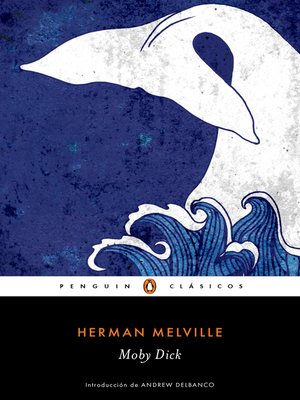Published in 1851, Herman Melville’s “Moby-Dick” remains an unparalleled masterpiece in American literature, exploring themes of obsession, revenge, and the indomitable spirit of humanity against the vast and unforgiving backdrop of the open sea.

The novel revolves around Captain Ahab’s relentless pursuit of the elusive white whale, Moby-Dick, who had previously maimed Ahab by biting off his leg at the knee. Ahab’s quest for vengeance becomes a symbol of humanity’s unyielding determination to confront the mysteries of the natural world, as well as the consequences of one’s own obsessions.
The title itself, “Moby-Dick,” emphasizes the centrality of the enigmatic white whale to the narrative. Moby-Dick is not merely a creature of the sea; he is a symbol of the unknown, the uncontrollable, and the relentless forces of nature. The novel invites readers to contemplate the metaphorical significance of this majestic yet elusive creature.
Melville’s narrative technique combines adventure, philosophy, and symbolism, creating a work that transcends its maritime setting. The novel is narrated by Ishmael, a young sailor who joins the whaling ship Pequod, providing readers with a multifaceted perspective on the events that unfold. Ishmael’s voice serves as a conduit for Melville’s exploration of the human condition, offering philosophical reflections on life, death, and the inscrutable mysteries of the sea.
One of the central themes of “Moby-Dick” is the nature of obsession and its consequences. Captain Ahab’s relentless pursuit of Moby-Dick becomes a metaphor for humanity’s insatiable desire to conquer and understand the unknown. Ahab’s tragic fate serves as a cautionary tale about the destructive power of obsession and the inability to accept the limits of human control.
The novel also delves into the camaraderie and conflicts among the diverse crew members aboard the Pequod. Melville explores the complexities of human relationships in the isolated and perilous environment of a whaling voyage, emphasizing the shared struggles and inherent conflicts that arise in the pursuit of a common goal.
“Moby-Dick” is more than a tale of maritime adventure; it is a profound exploration of the human spirit’s capacity for resilience and defiance in the face of daunting challenges. The open sea becomes a metaphor for the vastness of human experience, where individuals confront their fears, desires, and the inevitability of their own mortality.
In conclusion, “Moby-Dick” remains a literary monument that transcends its time and genre. Melville’s exploration of obsession, the unknown, and the human spirit’s confrontation with the elemental forces of nature has ensured the novel’s enduring relevance. “Moby-Dick” invites readers to embark on a symbolic journey, confronting the depths of the human psyche and the inexorable mysteries that lie beyond the horizon.
